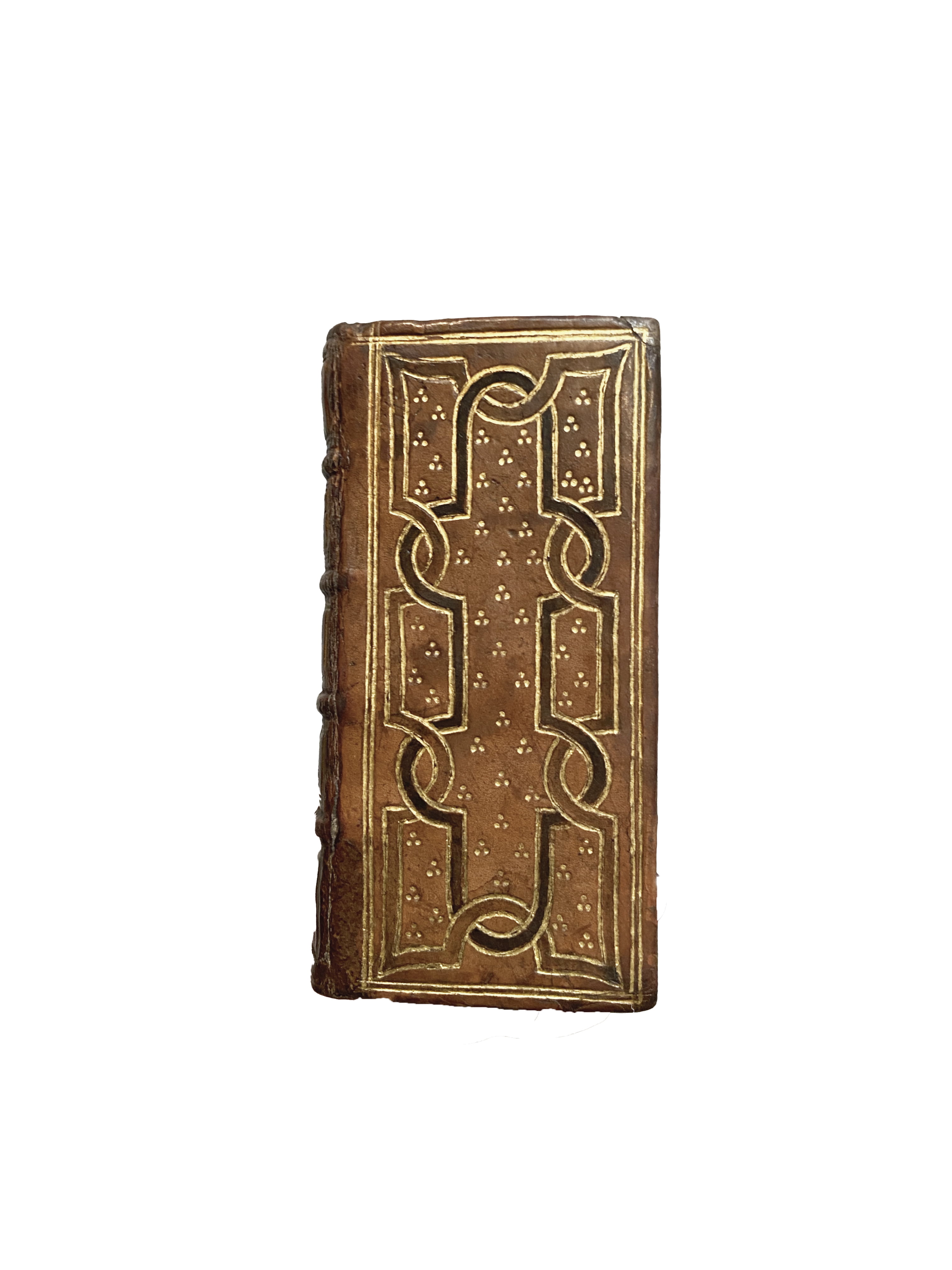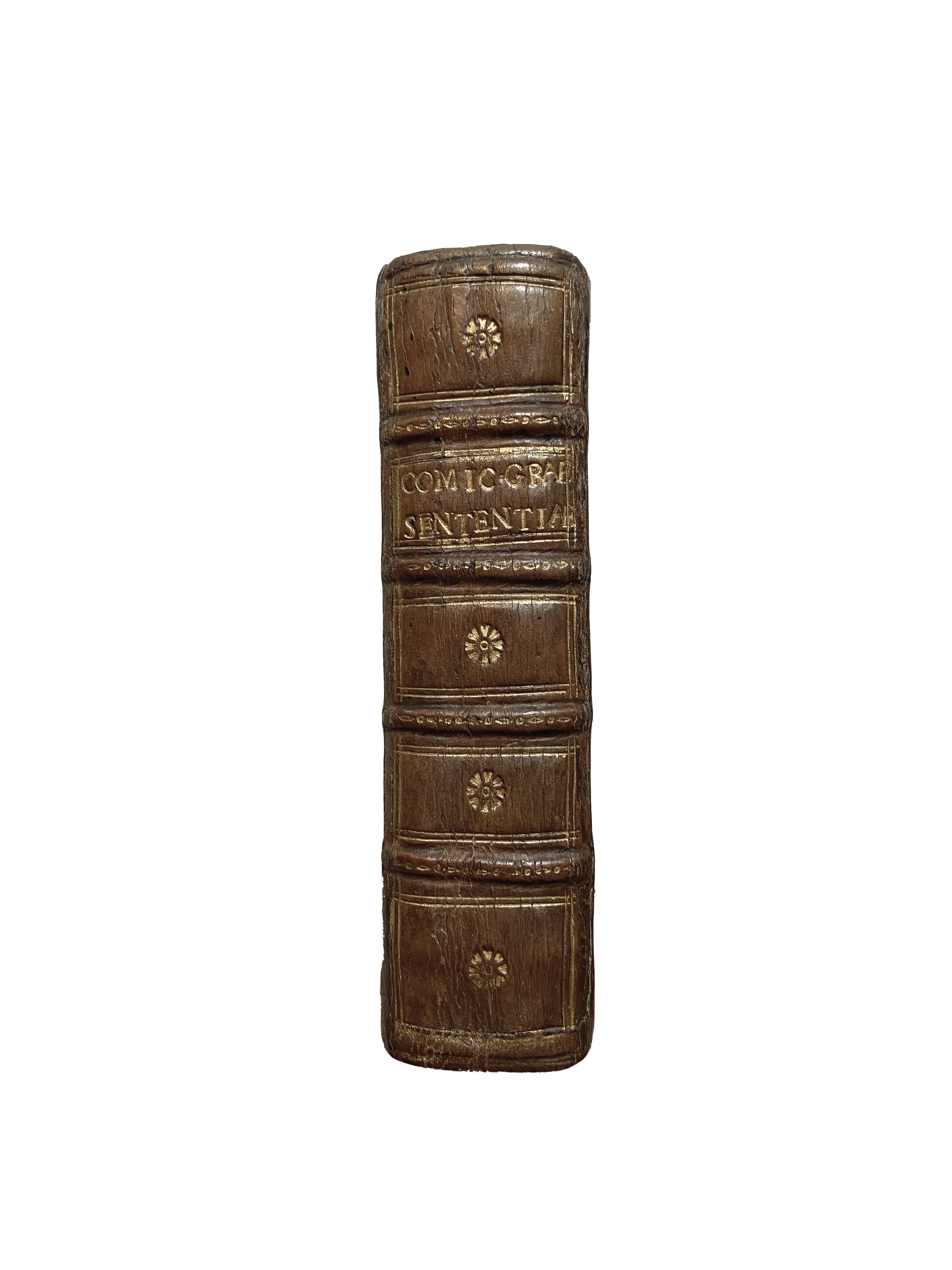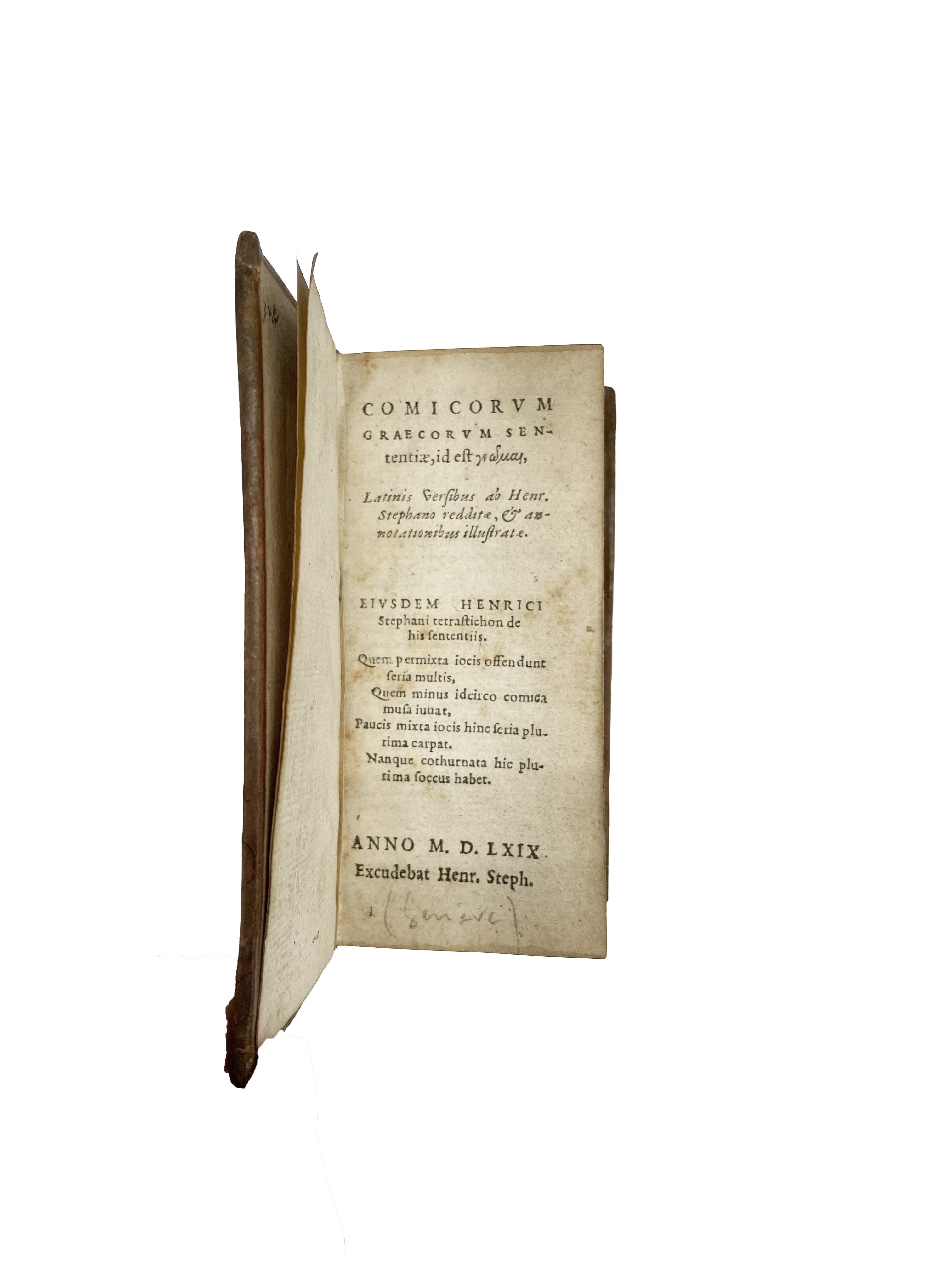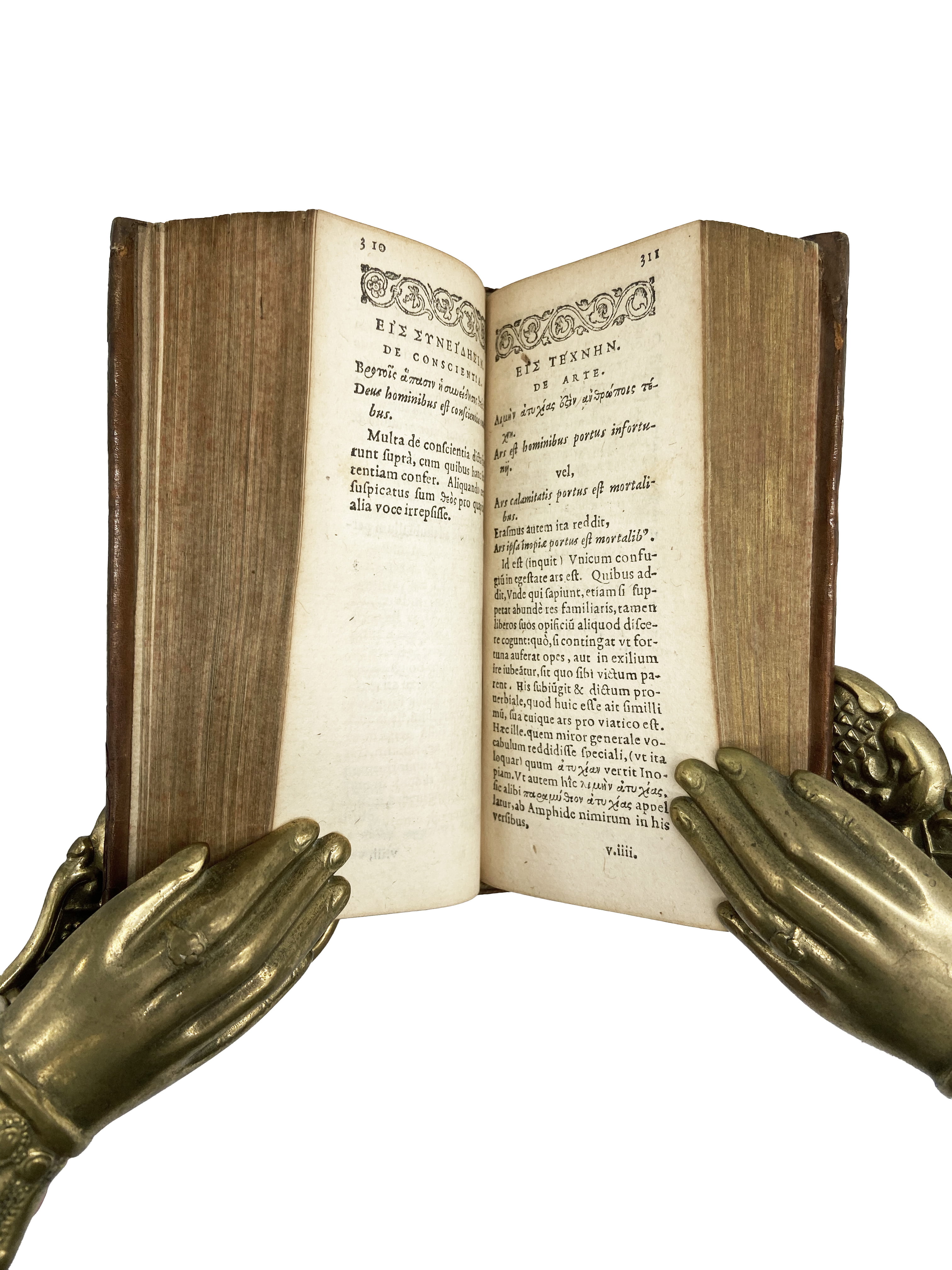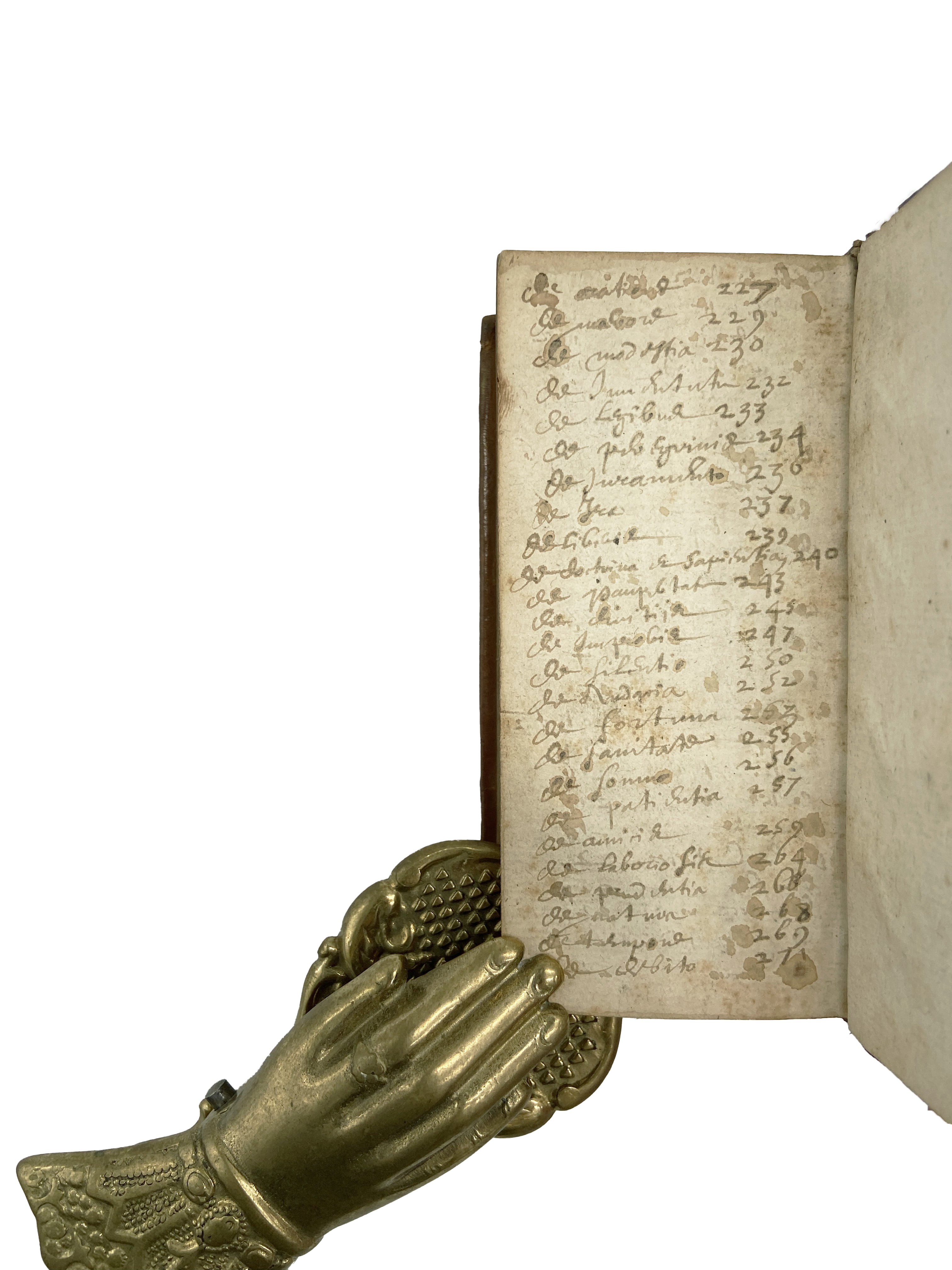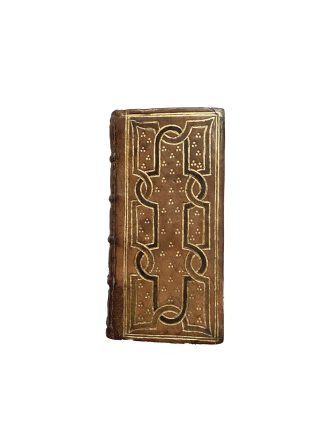ESTIENNE, Henri.
A LOVELY À LA CIRE
Comicorum Graecorum Sententiae
[Geneva], Henri II Estienne, 1569£4,250.00
FIRST EDITION. 24mo, pp. (xxxii) 635 [misnumbered 633] (v), missing a1 blank. Roman, Italic and Greek letter, woodcut headpieces and ornaments. Age yellowing, small tear from outer blank margin of one fol., occasional light soiling mainly marginal. A very good copy in contemporary French calf ‘a la cire’, covers double gilt ruled, inner panel with gilt interlaced strapwork design, partly infilled in black, gilt pointille tools. Spine with gilt raised bands, double gilt ruled compartments with gilt flower at centres, tiny repair to one corner, a.e.g. Contemporary ms. index to last leaf.
First edition of this pocket collection of ‘sententiae’ and proverbs from the Greek and Latin comic authors, edited by Henri Estienne. The volume is in a lovely contemporary painted strapwork binding, probably from a Lyonese or Parisian workshop, the principal sources of production of these charming bindings around the mid 16th century. Although the technical procedure of gilding and painting had been developed in Italy, similar ‘relieures à la cire’ with coloured or uncoloured geometrical interlacings quickly came to typify the elegance of the French Renaissance binders. Enamelled onlays and fine gilt borders were particularly appreciated by the grandest patrons of the day – Grolier, Henry II, Catherine de Medici – and realised only by a handful of skilled ‘doreurs sur cire’. The main feature of these bindings is that each one is unique: this is a simple and elegant example, with a peculiar three dots pattern filling in the spaces of the design instead of the more common dense single dots pattern.
‘Comicorum Graecorum Sententiae’ is an entertaining anthology of Greek aphorisms (‘sententiae’ in Laitn, ‘gnomai’ in Greek), selected, translated and commented on by Henri Estienne. This is one of Estienne’s tiniest books, defined ‘pusillus’ (i.e. very little) in the dedication to the Duke of Bavaria. It begins with a short introductory treatise by Estienne on aphorisms, outlining what they are and how to select them. Then, a few chapters are dedicated to Greek New Comedy playwrights in alphabetical order (e.g. Apollodorus, Antiphanes, Diphilus, Menander, etc), containing a list of their ‘sententiae’ with a Latin translation and a brief explanation. Another series of chapters contains aphorisms, mainly from Menander, organised by subject, e.g. on “the future”, “friends”, “drunkenness”, “luck”, “wealth”, “anger”, “laughter”. At the end, a separate section not indicated in the title page contains a similar collection derived from Latin authors (including Naevius, Ennius, Terence, Plautus etc.), including a selection of Publius Syrus’ sententiae with a commentary by Erasmus. “These sorts of compilations were very popular in their day, and Henri Estienne may have issued them as ‘bread-and-butter’ publications, in order to raise the capital (which he had lost with the patronage of Fugger) necessary to meet the printing and publication costs of his magnum opus now nearing completion: the Thesaurus Graecae Linguae” (Schreiber).
Interestingly, several pages were deliberately left blank to allow for the reader’s notes: in this copy, the last blank leaf is annotated in a contemporary hand, and it contains an index of contents from page 190 to 271.
USTC 450582; BM STC Fr. C16 Supplement, p. 32; Brunet II, p. 1080; Graesse II, p. 508; Renouard 132:3; Schreiber 175.In stock


